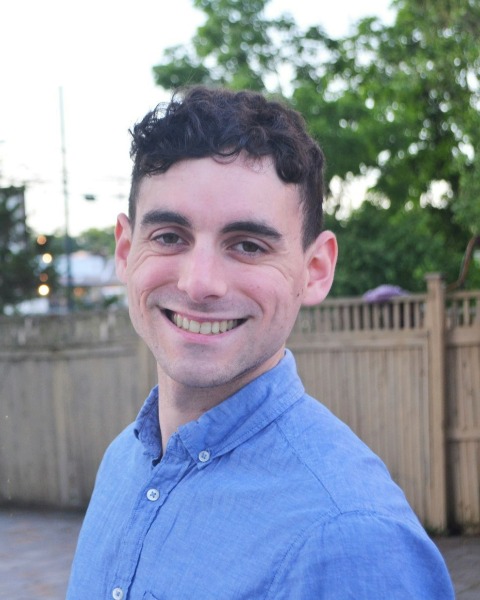LGBTQ+
Symposium 39 - Minority Stress and Mental Health among LGBTQ+ Persons Across the Lifespan: A Longitudinal, Developmentally Informed Approach
Level of Familiarity: Basic to moderate
Recommended Readings: Rivas‐Koehl, M., Rivas‐Koehl, D., & McNeil Smith, S. (2023). The temporal intersectional minority stress model: Reimagining minority stress theory. Journal of Family Theory & Review, 15(4), 706-726. https://doi.org/10.1111/jftr.12529, Abreu, R. L., Lefevor, G. T., Gonzalez, K. A., Teran, M., & Watson, R. J. (2022). Parental Support, Depressive Symptoms, and LGBTQ Adolescents: Main and Moderation Effects in a Diverse Sample. Journal of Clinical Child and Adolescent Psychology: The Official Journal for the Society of Clinical Child and Adolescent Psychology, American Psychological Association, Division 53, 1–16. Advance online publication. https://doi.org/10.1080/15374416.2022.2096047, Jonas, L., Salazar de Pablo, G., Shum, M., Nosarti, C., Abbott, C., & Vaquerizo-Serrano, J. (2022). A systematic review and meta-analysis investigating the impact of childhood adversities on the mental health of LGBT+ youth. JCPP Advances, 2(2), e12079. https://doi.org/10.1002/jcv2.12079, Pachankis, J. E., Sullivan, T. J., Feinstein, B. A., & Newcomb, M. E. (2018). Young adult gay and bisexual men’s stigma experiences and mental health: An 8-year longitudinal study. Developmental Psychology, 54(7), 1381–1393. https://doi.org/10.1037/dev0000518, Mereish, E. H., Miranda, R., Jr., Liu, Y., & Hawthorne, D. J. (2021). A daily diary study of minority stress and negative and positive affect among racially diverse sexual minority adolescents. Journal of Counseling Psychology, 68(6), 670–681. https://doi.org/10.1037/cou0000556
-
MT
Mingcong Tang, M.A. (she/her/hers)
Graduate Student
Center for Anxiety and Related Disorders, Boston University
Boston, Massachusetts, United States -

Benjamin Shepherd, M.S., M.Ed. (he/him/his)
Nova Southeastern University
Dania Beach, Florida, United States -

Brian Feinstein, Ph.D. (he/him/his)
Associate Professor
Rosalind Franklin University
N Chicago, Illinois, United States -
MT
Mingcong Tang, M.A. (she/her/hers)
Graduate Student
Center for Anxiety and Related Disorders, Boston University
Boston, Massachusetts, United States -
BH
Bree Horrocks, M.Ed. (they/them/theirs)
Children’s Health – Children’s Medical Center/University of Texas Southwestern Medical Center
Dallas, Texas, United States -

Benjamin Shepherd, M.S., M.Ed. (he/him/his)
Nova Southeastern University
Dania Beach, Florida, United States -
RL
Roberto López, Jr., Ph.D. (he/him/his)
University of California, Los Angeles
Los Angeles, California, United States
Chair(s)
Discussant(s)
Presenter(s)
Mental health concerns (e.g., depression, anxiety, suicidality) disproportionately affect lesbian, gay, bisexual, transgender, and other queer (LGBTQ+) persons relative to heterosexual and cisgender persons (Moagi et al., 2021; Fox et al., 2018; Pachankis et al., 2018). Research predominantly utilizes cross-sectional data to examine experiences of sexual orientation- and gender-related stigma (i.e., minority stress) in relation to mental health with limited attention to the influence of developmental, contextual, and temporal factors across the lifespan, such as early and ongoing parent-child interactions, interactions within the LGBTQ+ community, and time itself (Abreu et al., 2022; Jonas et al., 2022; Mereish et al., 2021). Using a longitudinal, developmentally informed approach provides a contextualized framework that honors the unique experiences of LGBTQ+ individuals of varying backgrounds and their families and enables an understanding of the degree and direction of associations between minority stress experiences and mental health over time (Rivas‐Koehl et al., 2023). This knowledge may shed light on ways to address persistent mental health inequities affecting this population.
In line with the convention theme of “community engagement, advocacy, and innovation to advance CBT,” this symposium will include four studies with rigorous longitudinal designs aimed at increasing awareness of minority stress experiences and their relation to mental health across the lifespan, ranging from adolescence to older adulthood. The first presenter will examine data from the Generations Study, a nationally representative longitudinal dataset of lesbian, gay, and bi+ adults in the US, to elucidate everyday experiences of discrimination and psychological distress as pathways from adverse childhood experiences (ACEs) to adulthood suicidal thoughts and behaviors. The second presenter will examine longitudinal trajectories of parent support in transgender youth aged 12 to 21 receiving gender-affirming care, as well as youth perception of parent support experiences and their impact on mental health. The third presenter will examine changes in exposure to minority stressors, including forms of stigma experienced both outside and within the LGBTQ+ community, in relation to changes in social anxiety symptoms over time among gay and bi+ men of varying ages. Using ecological momentary assessment, the last presenter will examine the moderating roles of sexual orientation and everyday discrimination experiences on the relation between depressive symptoms and suicidal ideation among young adults at increased risk for suicide.
In summary, this symposium offers clinically relevant insights into the mental health trajectories of LGBTQ+ persons over time, with a focus on the lifelong impact of adverse childhood experiences, minority stress, and access to social safety from parents and the LGBTQ+ community. Our Discussant is a leading researcher in understanding and reducing health disparities affecting LGBTQ+ persons across the lifespan. He will discuss how the longitudinal and developmentally informed findings from each presentation can inform clinical assessments and treatment recommendations, as well as future research.
Learning Objectives:
- Explain general and identity-specific pathways to mental health disparities faced by LGBTQ+ communities across the lifespan.
- Discuss the role of early and ongoing parent-child interactions in the development and maintenance of LGBTQ+ persons' mental health concerns.
- Describe the impact of social safety both outside and within LGBTQ+ communities (e.g., biological and chosen families) on mental health outcomes.
- Identify diverse longitudinal methodologies and their utility in addressing mental health disparities faced by marginalized communities.
- Recognize the importance of developmentally informed, culturally attuned approaches to research and clinical practice with LGBTQ+ persons.
Presentations:
-
12:30 PM - 2:00 PM EST(SYM 39) Identifying Pathways from Childhood Adversity to Suicidal Thoughts and Behaviors Among Sexual Minority Adults: An Exploratory Mediation Analysis
Speaker: Mingcong Tang, M.A. (she/her/hers) – Center for Anxiety and Related Disorders, Boston University
Co-author: Mingcong Tang, M.A. (she/her/hers) – Center for Anxiety and Related Disorders, Boston University
Co-author: Violeta Rodriguez, Ph.D. – Department of Psychology, University of Illinois Urbana-Champaign
Co-author: Amelia Stanton, Ph.D. (she/her/hers) – Boston University
Co-author: Lauren Trichtinger, Ph.D. – Division of Mathematics, Computing, and Statistics, Simmons University
Co-author: Qimin Liu, Ph.D. – Boston University
-
12:30 PM - 2:00 PM EST(SYM 39) Longitudinal Trajectories of Support and the Relationship to Mental Health for Transgender Youth
Speaker: Bree K. Horrocks, M.Ed. (they/them/theirs) – Children’s Health – Children’s Medical Center/University of Texas Southwestern Medical Center
Co-author: Jayme Palka, PhD – University of Texas- Southwestern medical center
Co-author: Laura Kuper, PhD, ABPP (they/them/theirs) – University of Texas-Southwestern Medical center
-
12:30 PM - 2:00 PM EST(SYM 39) Fearing Judgment from Outside and Within: Heterosexist Stigma and Intraminority Stigma Predict Social Anxiety Symptom Severity over Time Among Gay and Bi+ Men
Speaker: Benjamin F. Shepherd, M.S., M.Ed. (he/him/his) – Nova Southeastern University
Co-author: Roberto López Jr., Ph.D. (he/him/his) – Department of Psychiatry and Biobehavioral Sciences, University of California, Los Angeles
Co-author: Janell Mensinger, Ph.D. (she/her/hers) – Department of Clinical and School Psychology, Nova Southeastern University
Co-author: Paula M. Brochu, Ph.D. – Nova Southeastern University
-
12:30 PM - 2:00 PM EST(SYM 39) Relations Between Sexual Orientation, Depressive Symptom Severity, and Suicidal Ideation: Preliminary Results from an Ecological Momentary Assessment Study
Speaker: Roberto López, Jr., Ph.D. (he/him/his) – University of California, Los Angeles
Co-author: Christianne Esposito-Smythers, Ph.D. – George Mason University

.png)
